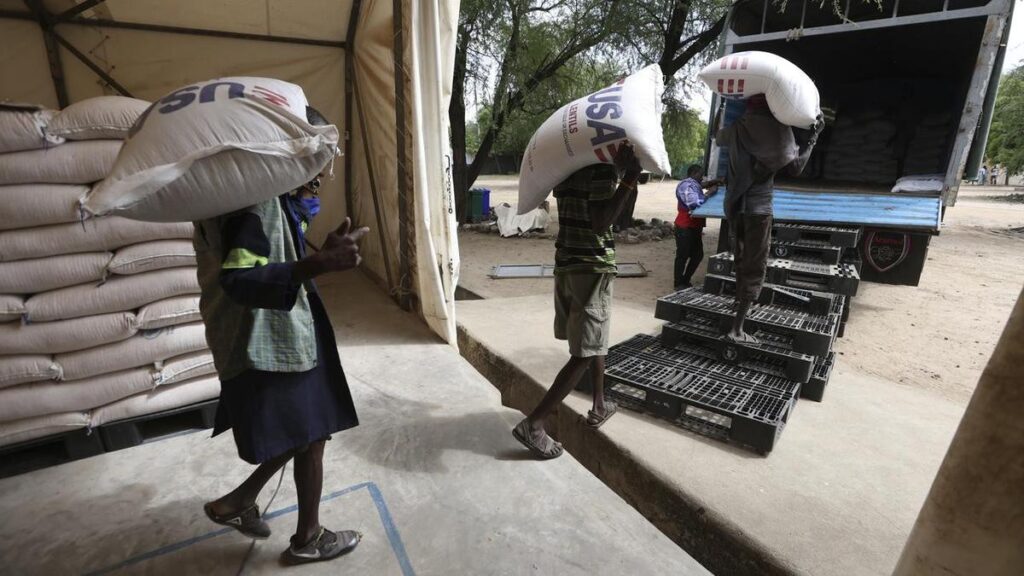
URGENT UPDATE: President Donald Trump has just announced a controversial move to block $4.9 billion in foreign aid, utilizing a rare tactic not seen in nearly 50 years. In a letter sent to House Speaker Mike Johnson on Thursday, Trump confirmed he will not spend the congressionally approved funds, effectively cutting the budget without legislative approval.
This unprecedented action uses a mechanism known as a pocket rescission, a tactic where the president requests Congress not to spend approved funds close to the fiscal year-end, which falls on September 30. By doing this, Congress has only 45 days to respond, preventing them from acting in time and allowing the funds to go unspent. This is the first time a president has employed this method since 1977, when President Jimmy Carter did so.
The letter, publicly posted on Friday morning via the White House Office of Management and Budget’s X account, specifies that the funding cuts will impact the State Department and the U.S. Agency for International Development (USAID). Trump’s administration has long targeted reductions in foreign aid, which they argue are necessary to shift control over spending away from Congress.
The 1974 Impoundment Control Act allows the president to propose cancellations of funds approved by Congress. Although Congress can vote to sustain or cut these funds, Trump’s timing ensures that the money lapses before any action can be taken. Earlier this year, Trump succeeded in securing congressional backing for $9 billion in cuts, further reflecting his administration’s commitment to reducing foreign aid despite the potential humanitarian consequences.
Critics argue that these cuts could severely impact global health initiatives and aid programs, especially as foreign populations face crises related to food supplies and development. The Trump administration announced in February that it would eliminate nearly all of USAID’s foreign aid contracts, amounting to a staggering $60 billion in overall assistance abroad.
Adding to the urgency, the Trump administration has also appealed to the Supreme Court to block lower court decisions that preserved foreign aid, including crucial funding for global health and HIV/AIDS programs. The implications of Trump’s latest budget maneuver are wide-reaching, with potential long-term effects on America’s global standing and humanitarian efforts.
As this situation develops, observers will be watching closely for Congress’s response and the potential fallout from this unprecedented use of executive power. This move could fundamentally change how foreign aid is managed in the United States and alter the landscape of international support at a critical time.






